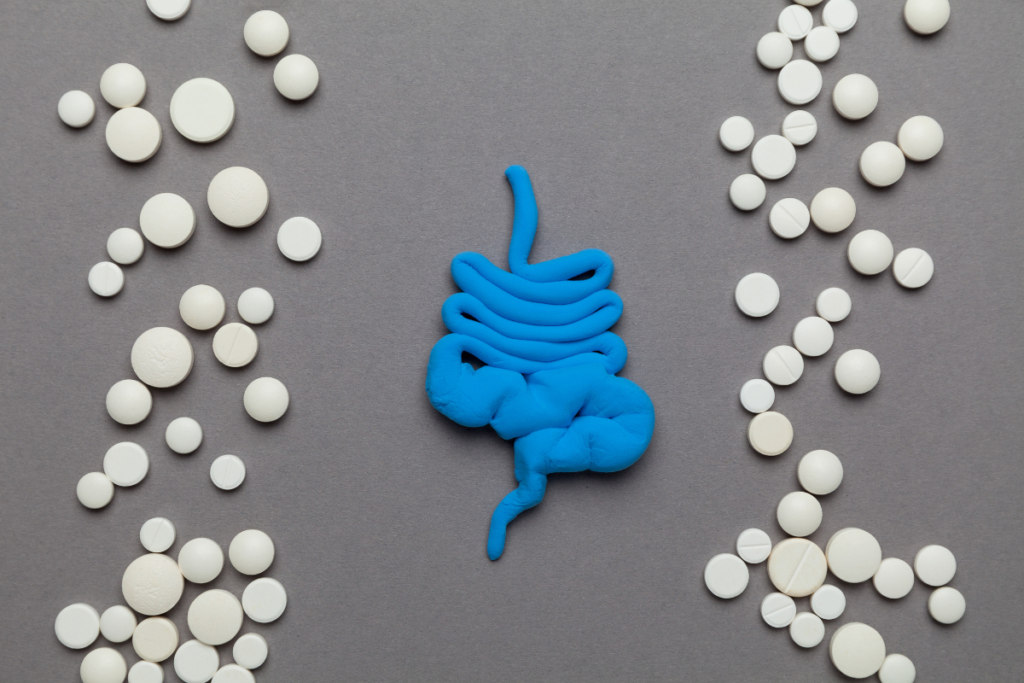Millions of people across the globe suffer from Irritable Bowel Syndrome (IBS) today. However, it is often misunderstood and misdiagnosed. Understanding IBS symptoms, triggers, and treatment options is critical to improving the quality of life for those living with this condition.
What is IBS?
IBS is a chronic illness that affects the colon or large intestine. Bloating, abdominal pain, and changes in bowel patterns, such as constipation, diarrhoea, or a combination are its symptoms. Based on the most common symptom, IBS is divided into three primary types:
- IBS-D (Diarrhea-predominant)
- IBS-C (Constipation-predominant)
- IBS-M (Mixed type, where both diarrhoea and constipation occur)
Symptoms of IBS
● Abdominal Pain: Cramping or discomfort, usually relieved by bowel movements.
● Bloating: A feeling that the abdomen is swollen or full.
● Changes in Bowel Habits: Diarrhea, constipation, or alternating between both.
● Mucus in Stool: A common symptom, though not everyone with IBS will experience this.
Causes and Risk Factors
1. Gut Sensitivity:
Increased gut sensitivity can lead to abnormal contractions, which can cause discomfort and changes in bowel habits.
2. Dietary Factors:
Fatty foods, dairy, caffeine, alcohol, and artificial sweeteners can trigger IBS symptoms.
3. Stress:
Anxiety and emotional stress can make IBS worse and cause flare-ups.
4. Infections:
Previous gastrointestinal infections (like gastroenteritis) can increase the risk of developing IBS.
5. Hormonal Changes:
IBS symptoms may get worse around menstruation, which could indicate that hormones are involved.
Treatment Options
1. Dietary Modifications:
● Low FODMAP Diet: A specialised diet that avoids specific carbohydrates that can cause symptoms because they are not well absorbed by the intestines.
● Fibre: Depending on the type of IBS, increasing fibre (for IBS-C) or decreasing fibre (for IBS-D) can help manage symptoms.
● Probiotics: These may help balance gut bacteria and reduce symptoms of bloating and discomfort.
2. Medications:
● Antispasmodics: Medications such as hyoscine or dicyclomine can help reduce cramping and abdominal pain.
● Laxatives: For constipation-predominant IBS, fibre supplements or osmotic laxatives (like polyethene glycol) may be used.
● Anti-Diarrheal Medications: For diarrhoea-predominant IBS, medications like loperamide (Imodium) can help reduce diarrhoea.
● Antidepressants: Low-dose antidepressants may be prescribed to help manage pain and improve gut motility, mainly if stress is a contributing factor.
3. Psychological Therapies:
● Cognitive Behavioral Therapy (CBT): This therapy changes anxiety and stress-causing thoughts and behaviours to improve IBS symptoms.
● Hypnotherapy: Hypnotherapy can reduce GI symptoms associated with stress.
4. Regular Exercise:
Physical activity, particularly aerobic exercises, can improve gut motility, reduce stress, and help manage IBS symptoms.
FAQs
Is IBS a severe condition?
While IBS is not fatal, it can significantly affect the quality of life due to chronic symptoms. Most people can successfully control their symptoms with the right care.
Can IBS cause weight loss?
Weight loss is not typical of IBS, though people with severe IBS may lose weight due to dietary restrictions or malabsorption of nutrients.
Is there a cure for IBS?
There is no cure for IBS, but it can be effectively managed with dietary changes, medications, and stress management.
Disclaimer:
This information is for educational purposes and should not replace professional medical advice. Always consult your doctor for personalised recommendations.
How HealthPil Can Help
HealthPil connects you with gastroenterologists specialising in IBS management and can provide a personalised treatment plan. Schedule your consultation today!

